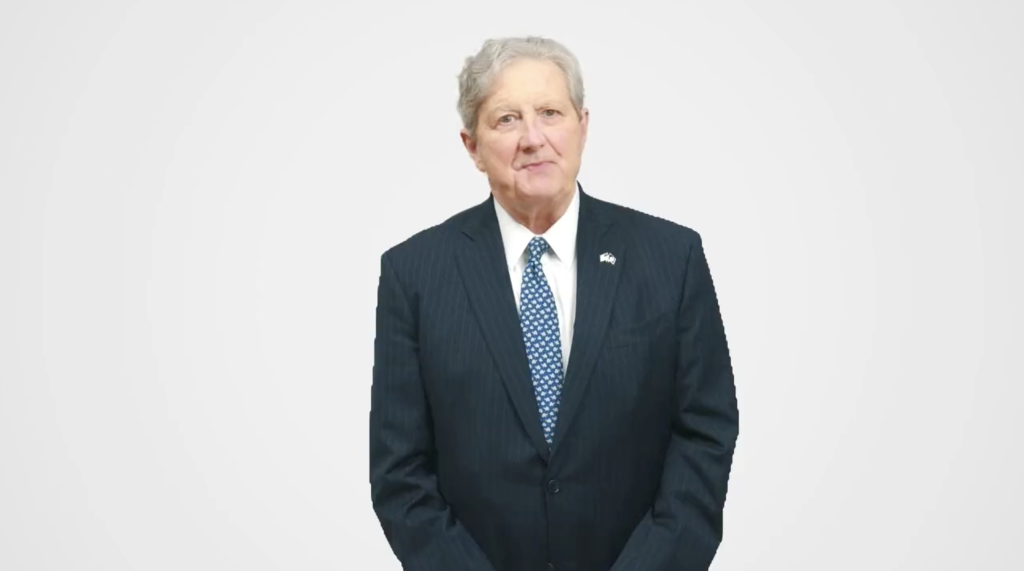As the U.S. edges deeper into what has become the longest government shutdown in history, Louisiana Republican Senator John Kennedy is pushing for lawmakers to feel the same financial pressure facing federal workers.
This week, Kennedy introduced two bills aimed at halting congressional pay during any government shutdown, arguing that elected officials should not continue receiving compensation while federal employees, from military service members to air traffic controllers, go without paychecks.
“I don’t see missing paychecks or empty dinner plates as leverage or bargaining chips,” Kennedy said. “If we can’t do our jobs and fund the government, we don’t deserve a paycheck — plain and simple.”
Senator John Kennedy just dropped a rare moment of logic on the Senate floor.
— Brian Allen (@allenanalysis) November 6, 2025
He’s introducing two bills to block Congress from getting paid during a government shutdown, arguing that if federal workers lose paychecks, lawmakers should too.
For once, a Republican said it plain:… pic.twitter.com/nwFXcmj4Xf
Kennedy’s proposals, the No Shutdown Paychecks to Politicians Act and the Withhold Member Pay During Shutdowns Act, are designed to close the gap between lawmakers and the people affected by funding stalemates.
Kennedy’s No Shutdown Paychecks to Politicians Act would immediately stop pay for members of Congress during a government shutdown and prevent them from receiving back pay once the shutdown ends.
The Withhold Member Pay During Shutdowns Act would instead place congressional salaries into an escrow account throughout the shutdown, with those funds only being released at the start of the next Congress.
The second bill also has a companion version in the House, introduced by Rep. Bryan Steil of Wisconsin.
Speaking on the Senate floor, Kennedy emphasized that shutdowns have real human costs from families struggling to cover rent, to SNAP benefits at risk, to military members seeing only partial pay.
He noted that in prior shutdowns, federal workers collectively borrowed hundreds of millions just to stay afloat.
“Members of Congress had an epiphany when their own pay was on the line,” Kennedy said, referencing similar measures supported during the 2013 shutdown. “They found religion and opened up the government.”
Kennedy made clear that his effort isn’t about political grandstanding — but pressure.
“We’ve been this close to an agreement for a week. Frankly, I hope I’m wrong, but I don’t think we’re really that close. So I’m offering these bills. People can vote yes or no.”
Government shutdowns have become an all-too-familiar political tactic, but the consequences hit everyday Americans long before they reach lawmakers. Kennedy’s proposals underscore a larger question:
Should elected officials share the financial consequences of political gridlock?




